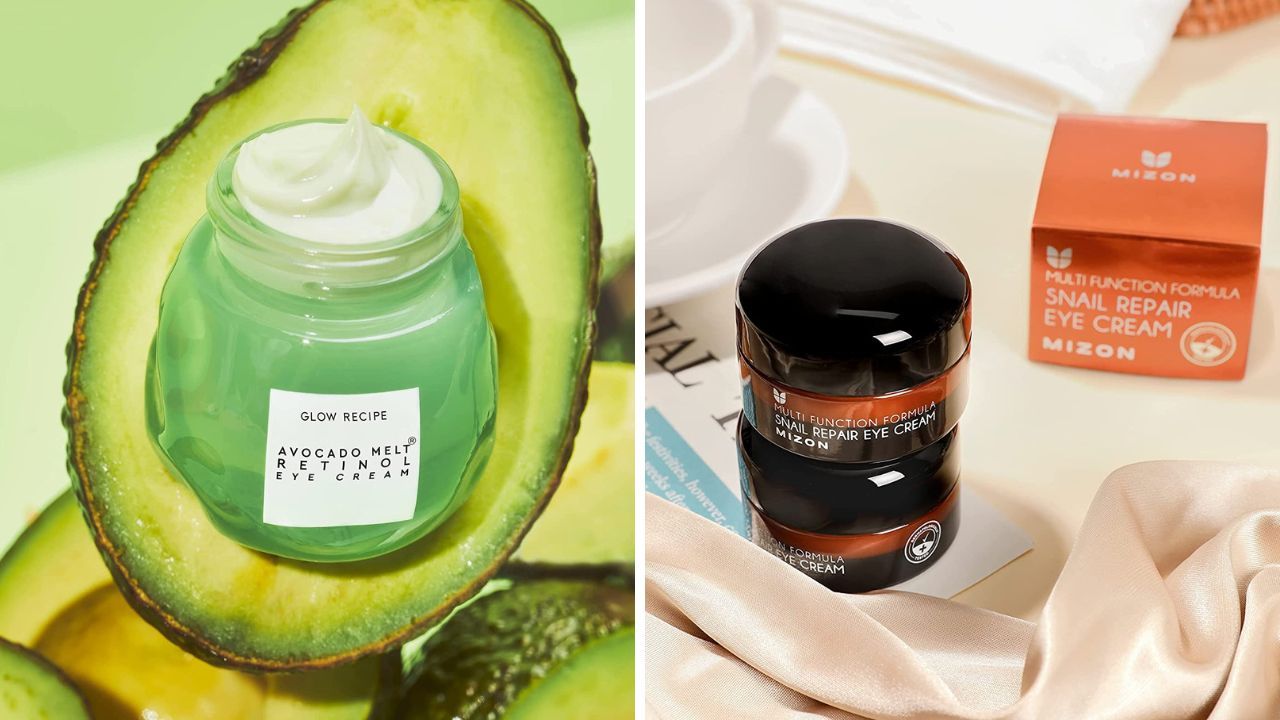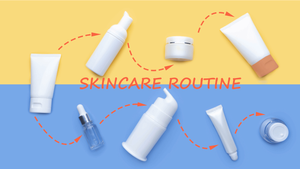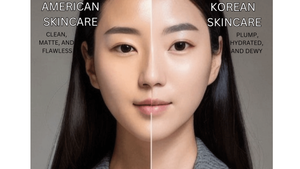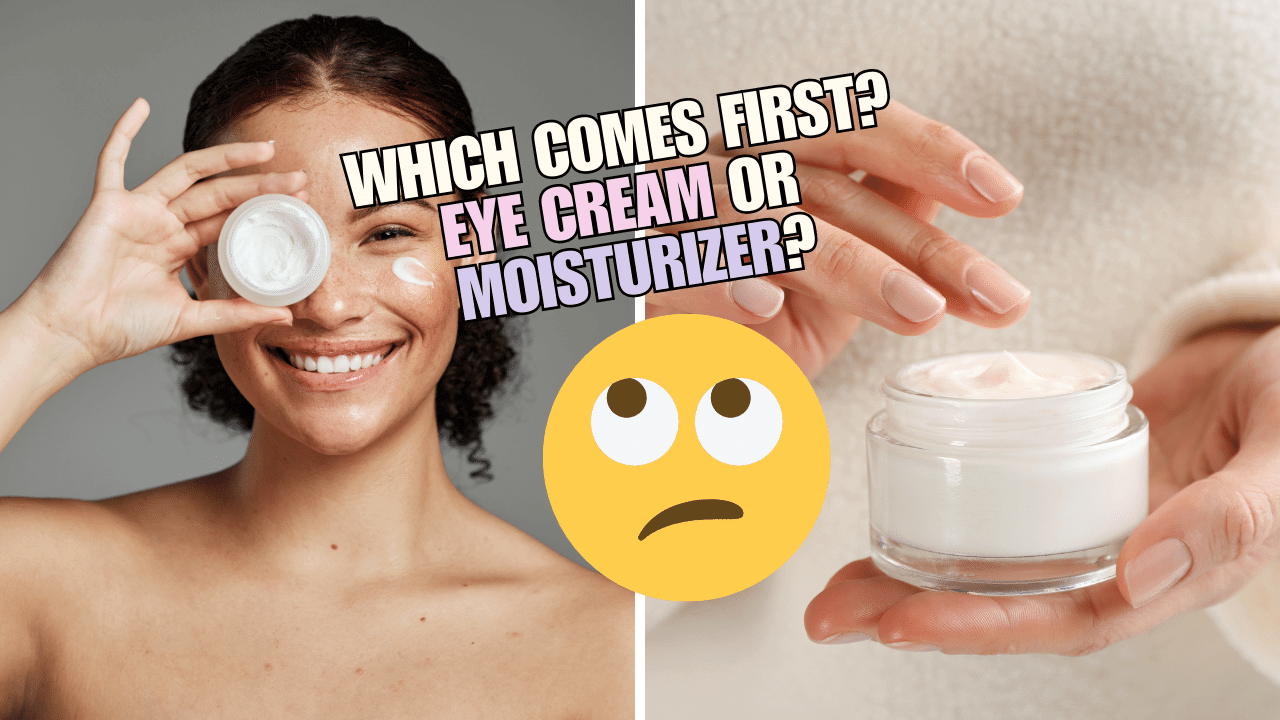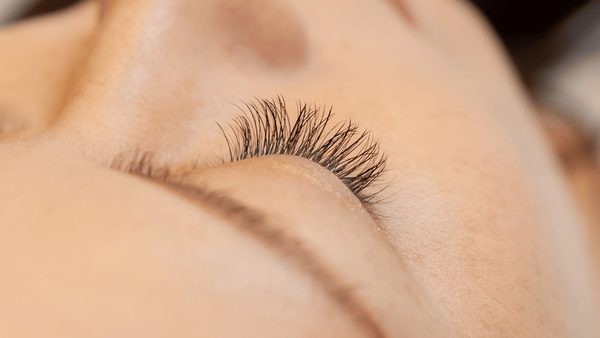Are you tired of searching for an eye cream that actually works? Look no further! Today, we’ll uncover the truth about eye creams and their effectiveness in tackling various skin concerns. Discover the best ingredients for specific issues, learn how to apply them correctly, and get expert advice from board-certified dermatologists. Let’s dive in and answer the question: do eye creams really work?
What We Will Cover
- Eye creams can be an effective part of a skincare routine, providing hydration and reducing the appearance of fine lines and wrinkles.
- Caffeine, retinol, peptides, arbutin, and kojic acid are powerful ingredients found in eye creams for anti-aging benefits.
- Board-certified dermatologists recommend using eye cream specifically formulated to diminish signs of aging around the eyes.
The Effectiveness of Eye Creams
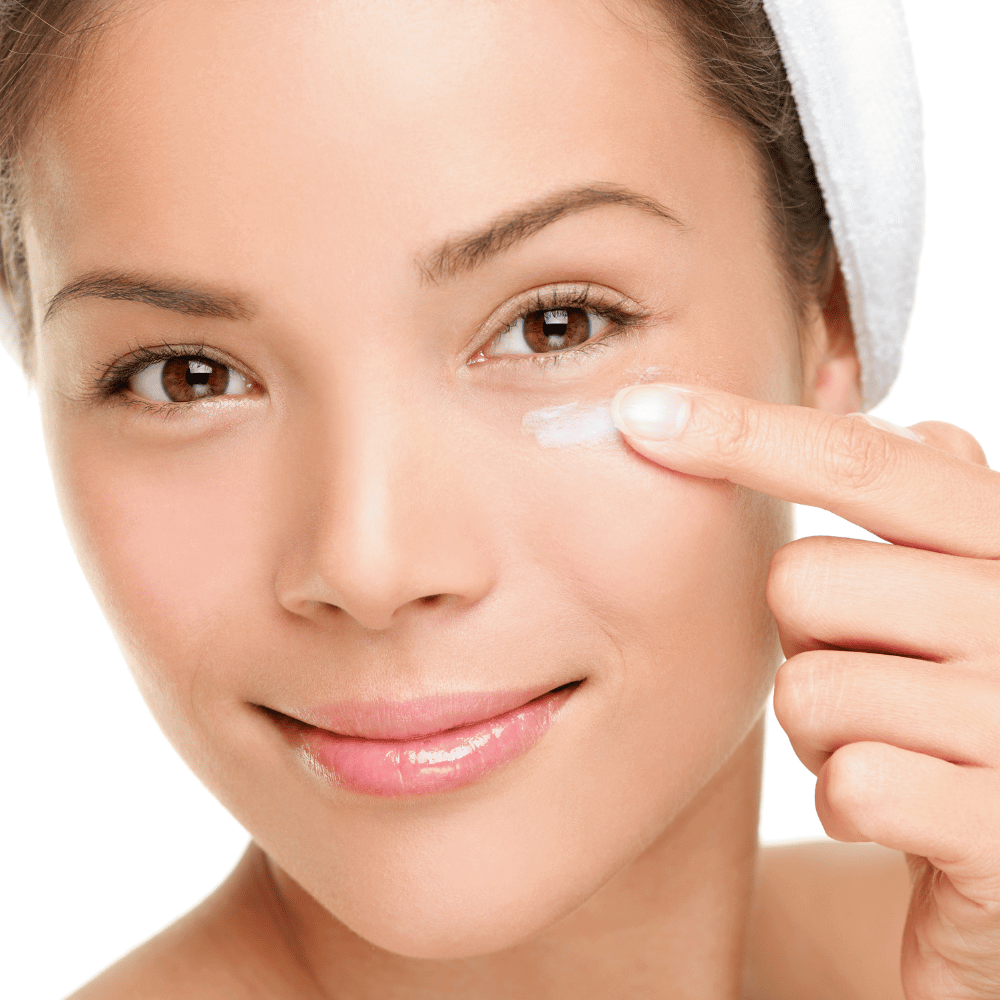
The effectiveness of eye creams depends on individual skincare concerns and the ingredients used. Some eye creams are specifically formulated to address:
- Puffiness
- Fine lines
- Wrinkles
- Dark under-eye circles
By understanding the key ingredients and their roles, you can select an eye cream that caters to your specific needs, ensuring optimal results.
Daily use of eye cream can help address these issues, providing hydration and reducing the appearance of fine lines and wrinkles. A well-formulated eye cream can be a game-changer in your skincare routine, making it an essential product for maintaining youthful and vibrant skin.
Caffeine for Puffiness
One of the main ingredients in eye creams designed to combat puffiness is caffeine. Caffeine-based eye creams work by constricting blood vessels and improving circulation, which can be beneficial for delicate eyelid skin.
An alternative to using eye creams for reducing puffiness is applying cold compresses, which can also help banish dark circles around the eyes.
Retinol and Peptides for Anti-Aging
Retinol and peptides are two key ingredients in eye creams that target wrinkles and fine lines. Retinol encourages collagen production, reducing the appearance of wrinkles and fine lines and making it an essential component of skin care.
Peptides can effectively reduce wrinkles and fine lines by encouraging collagen production and augmenting skin elasticity, helping to stimulate collagen production in the skin. The long-term advantages of using retinol and peptides may include reduced wrinkles and fine lines, increased skin elasticity, and improved skin tone.
Arbutin, Vitamin C, and Kojic Acid for Anti-Pigmentation
Arbutin, vitamin C, and kojic acid are essential ingredients in eye creams designed to lighten dark spots and even out skin tone. Arbutin is a naturally-derived skin lightening agent obtained from the bearberry plant, offering improved depigmenting efficacy, sun protection, lightening effects, and decreased hyperpigmentation.
Vitamin C helps to diminish the visibility of dark spots and even out skin tone by suppressing the production of melanin, the pigment responsible for skin color. Kojic acid, extracted from mushrooms, is also effective in reducing the appearance of dark spots and evening-out skin tone. Both vitamin C and kojic acid protect the skin from external damage.
Hyaluronic Acid, Ceramides, and Niacinamide for Hydration
Key ingredients in eye creams that provide hydration and improve skin barrier function include:
- Hyaluronic acid: a naturally occurring substance in the body that helps to maintain moisture and hydrate the skin
- Ceramides: lipids that form a protective layer on the skin, aiding in the retention of moisture and blocking out irritants
- Niacinamide: a form of vitamin B3 with anti-inflammatory properties that helps to reinforce the skin’s barrier function.
For dry and mature skin, we suggest SkinCeuticals Eye Balm, which includes vitamin E and aloe vera to nourish and safeguard the fragile skin around the eyes. These ingredients work together to provide optimal hydration and protection for the delicate eye area.
Understanding Dark Circles
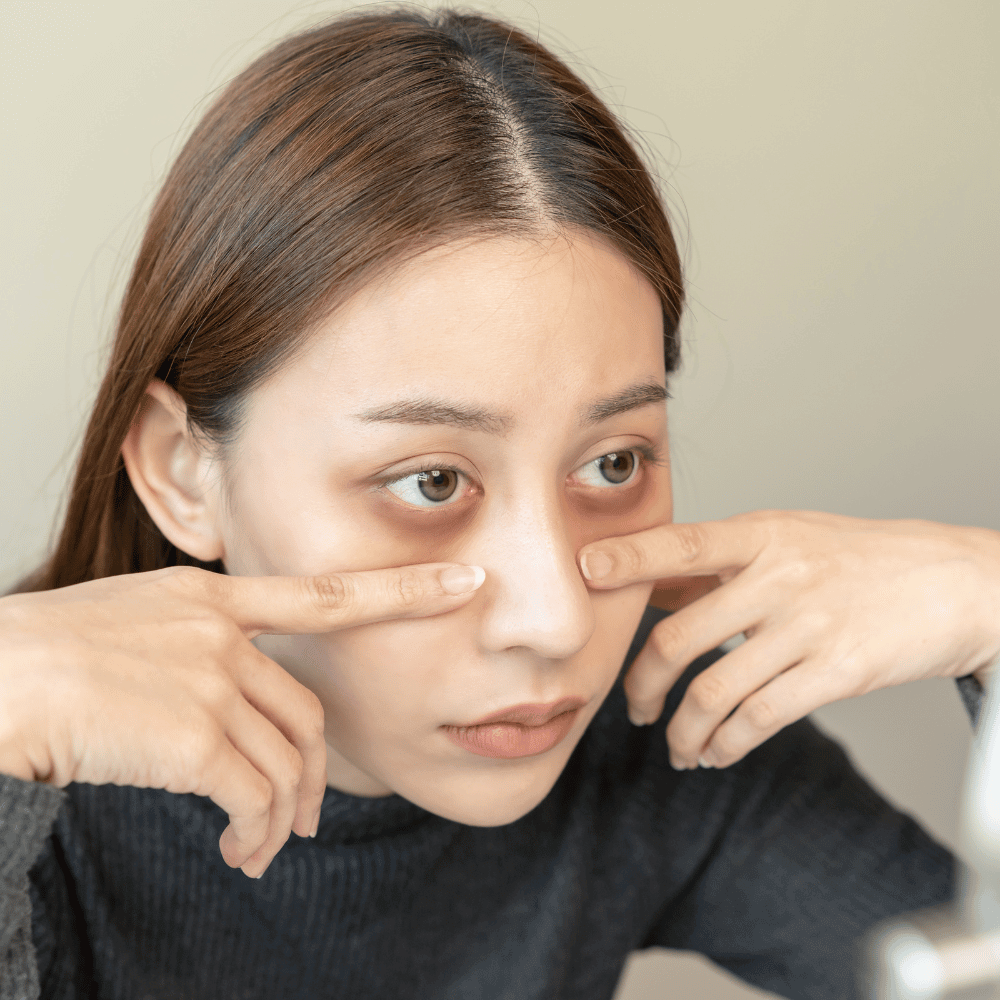
Dark circles can be caused by various factors, including genetics, lifestyle, and skin structure. They occur when the tiny veins in the area rupture and leak, resulting in discoloration similar to bruising. While eye creams may help reduce the visibility of dark circles, they cannot completely eliminate them.
For some individuals, alternative treatments such as:
- Botox
- Lasers
- Fillers
- Radiofrequency devices
- Microneedling
- PRP (Platelet-rich plasma)
- Surgical procedures
It may be necessary. Maintaining a healthy and robust skin matrix is essential for supporting the capillaries and reducing dark circles.
Proper Application of Eye Creams
Applying eye creams correctly is crucial for achieving the best results. To apply, use a small amount of product and gently dab it around the eye area, beginning in the inner corner and working outwards. This method ensures that the product is evenly distributed and absorbed by the skin.
When applying eye creams containing retinol, it is important to do so during the night to avoid sun exposure and irritation. Additionally, avoid applying eye cream to the top lid, as this increases the likelihood of the product entering the eye, resulting in irritation.
Eye creams should be applied daily but can be used twice daily if desired.
Top Eye Cream Recommendations
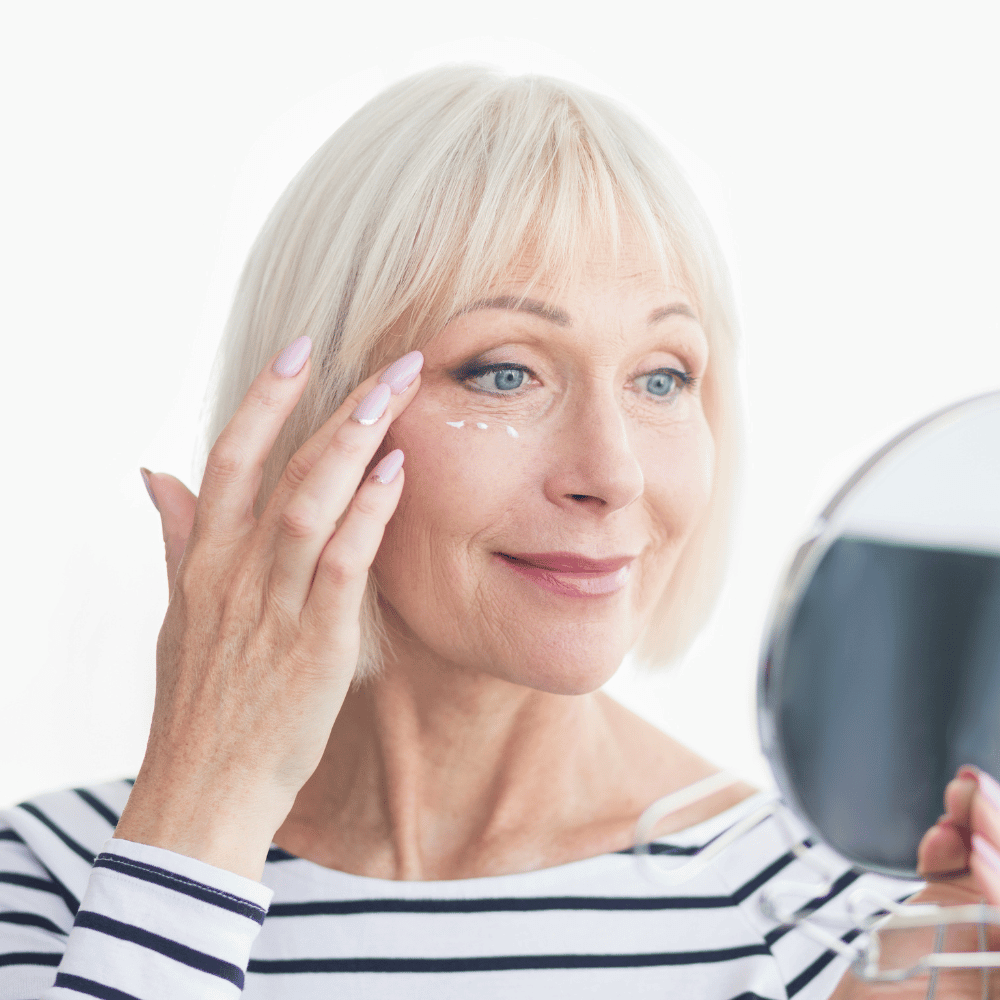
When selecting an eye cream, it is important to consider your skin type, such as thin skin, and any specific concerns you may have, such as mature skin, sensitivity, or dark circles. Incorporating skincare into your daily routine, including using a tinted moisturizer, can help address these issues.
In the following sections, we will explore top eye cream recommendations for these specific skin types and concerns.
Best for Mature Skin
La Roche-Posay’s Redermic [R] Retinol Eye Cream is specifically designed to diminish the appearance of wrinkles and fine lines around the eye area. It contains 0.1% pure retinol, which encourages collagen production, resulting in smoother, more youthful-looking skin.
This eye cream is ideal for mature skin and those looking to target wrinkles and fine lines. It not only reduces the appearance of these common signs of aging but also improves skin tone and texture.
Best for Sensitive Skin
Hada Labo’s Age Correcting Eye Cream or Hada Labo's Wrinkle Corrector is an excellent option for sensitive skin, as it contains collagen and retinol to help reduce the appearance of fine lines and signs of aging. This gentle formula is specifically designed for those with sensitive skin who want to achieve smoother, more youthful-looking skin without causing irritation.
In addition to Hada Labo’s wrinkle corrector, other eye creams recommended for sensitive skin include Avène Soothing Eye Contour Cream and La Roche-Posay Toleriane Dermallegro Eye Cream. These products are designed to be ultra-gentle and are known for their effectiveness in soothing and repairing the delicate skin around the eyes.
Best for Dark Circles
For those looking to target dark circles, No7 Youthful Eye Serum is a top recommendation. This eye cream features hyaluronic acid, vitamin C, and anti-aging peptides to help reduce the appearance of wrinkles and improve skin tone.
These key ingredients work together to diminish the visibility of dark circles and provide a more youthful, radiant appearance. In addition to No7 Youthful Eye Serum, other eye creams contain:
- Caffeine
- Retinol
- Arbutin
- Kojic acid
- Hyaluronic acid
May also be beneficial for dark circles.
The Role of Collagen Production
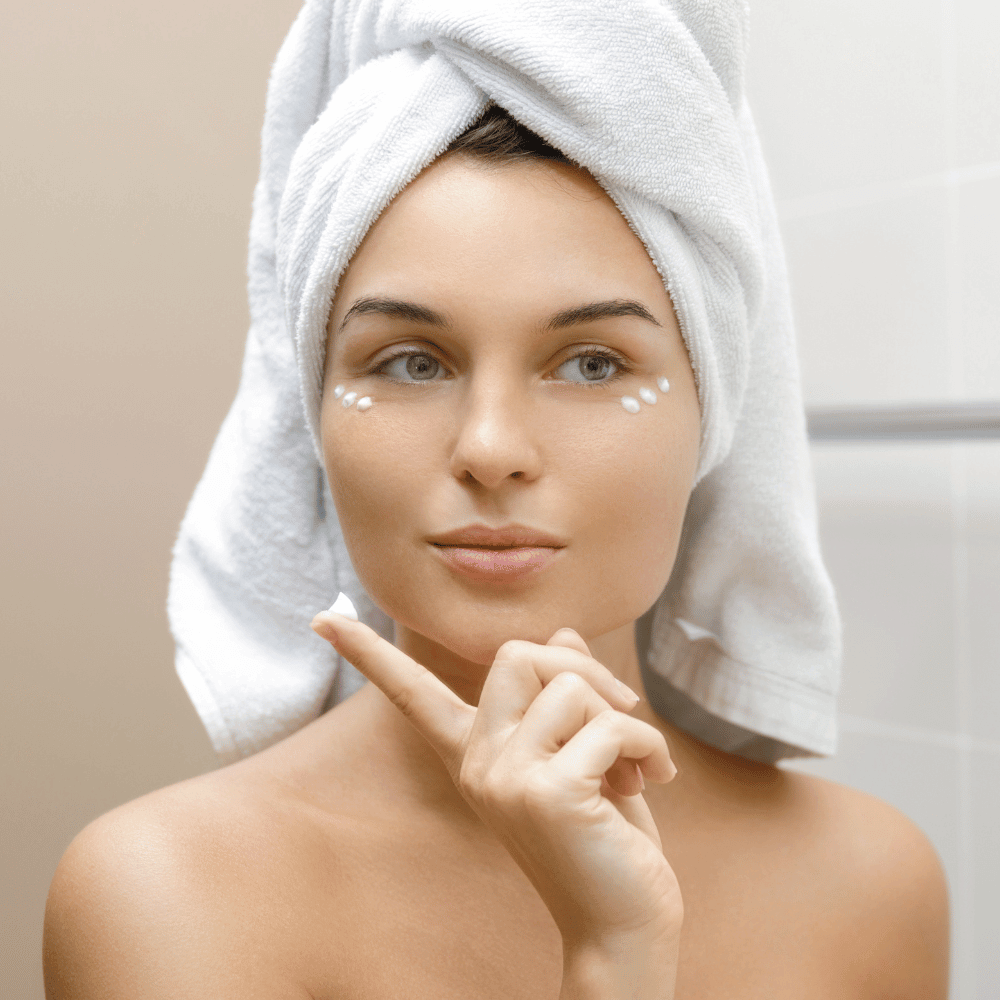
Collagen production is essential for maintaining smooth skin, as it is the main structural protein in our skin. When collagen levels are high, the skin appears smooth and youthful. As we age, collagen production decreases, leading to the appearance of wrinkles and fine lines.
Eye creams containing retinol, peptides, and growth factors can help boost collagen levels, resulting in smoother, firmer skin. Retinol encourages collagen production, while peptides and growth factors defend existing collagen from degradation. By incorporating eye creams with these ingredients into your skincare routine, you can stimulate collagen production and maintain a youthful appearance.
Integrating Eye Creams into Your Skincare Routine
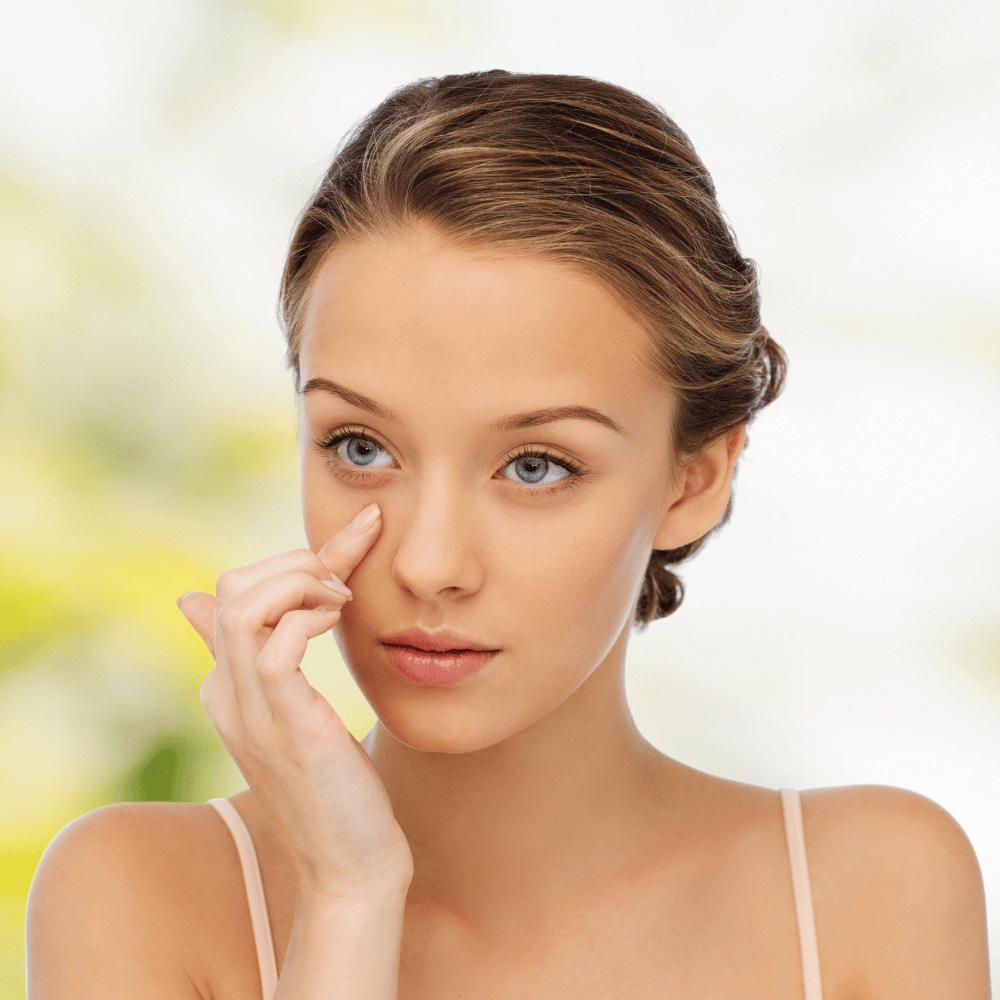
Integrating eye creams into your skincare routine involves choosing the right product for your skin type and concerns, applying it correctly, and being consistent with usage. To achieve the desired outcome, it is essential to adhere to a consistent routine with your eye cream, which should include daily application and following the standard sequence of skincare products: cleanser, toner, eye cream, moisturizer, and sunscreen.
Choosing the right eye cream for your skin type and needs is crucial for optimal results. For instance, if you have dry skin, look for an eye cream that is moisturizing and includes components such as hyaluronic acid, ceramides, and niacinamide. If you are aiming to diminish the appearance of wrinkles and fine lines, look for an eye cream that contains retinol and peptides.
Expert Opinions: Board-Certified Dermatologist Insights

Board-certified dermatologists emphasize the importance of using eye creams specifically formulated for the delicate eye area and targeting specific concerns. Eye creams designed for the delicate eye area are typically more expensive than other facial creams, thus emphasizing the importance of using them to ensure the delicate eye area is properly cared for.
Using the right eye cream can help diminish the appearance of:
- fine lines
- wrinkles
- dark circles
- puffiness around the eyes
However, it is important to remember that eye creams should not be used all over the face, as they are designed specifically for the sensitive eye area and are generally pricier than other facial creams.
Alternatives to Eye Creams
If you’re not ready to invest in a dedicated eye cream just yet, there are alternatives that can still provide benefits for the delicate eye area. A well-formulated moisturizer, cold compresses, and hydrating ingredients such as Vaseline may be beneficial for eye care.
For those with sensitive skin, alternatives to eye creams include using hydrating ingredients like Vaseline to create a protective barrier and help retain moisture, or incorporating hyaluronic acid and glycerin to draw moisture into the skin. These simple alternatives can help maintain the delicate skin around the eyes without the need for a dedicated hydrating eye cream.
Eye Cream FAQs
What are the cons of eye creams?
Eye creams can sometimes cause more harm than good, leading to allergic reactions and irritation which can cause thickening and darkening of the eyelid skin. They also often do not contain sun protection and tend to feel heavy and thick.
Are eye creams worth it?
Overall, a good all-rounder face cream may be a better investment than an eye cream, as it can provide many of the same benefits without focusing on a single issue. However, for specific issues such as dark circles, an eye cream may be helpful.
At what age should I start using eye cream?
It is recommended to start using an eye cream in your early 20s. However, even if you are past that age, there are still eye creams that can help address your needs.
How often should I apply eye cream?
Apply eye cream daily, and if needed, twice a day for best results.
Can I use eye cream all over my face?
No, eye cream should only be used on the delicate skin around the eyes as it is more expensive and formulated for that specific area.
Final Thoughts
In conclusion, eye creams can be effective in addressing various skincare concerns, depending on the ingredients and individual needs. By understanding the role of ingredients like caffeine, retinol, peptides, arbutin, vitamin C, kojic acid, hyaluronic acid, ceramides, and niacinamide, you can choose the right eye cream for your skin type and concerns. Whether you’re looking to banish dark circles, reduce puffiness, or combat the signs of aging, there’s an eye cream out there for you.
• "The secret of getting ahead is getting started.” - Mark Twain
You might also like:
